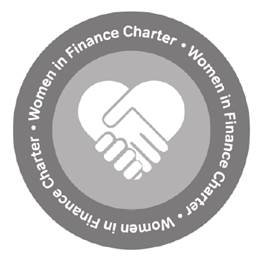Ethics & Diversity
The Society is committed to ensuring that there is no Modern Slavery or Human Trafficking in its supply chains or in any parts of its business.
The Society is a single entity and does not operate outside of the UK.
All employees are provided with training and have a responsibility to be alert to risks in the Society and the supply chain with regards to slavery and human trafficking. Employees will report any concerns in the first instance as a Risk Event; The Speak Up Policy is also available if this is more appropriate.
Wherever possible, the Society builds long standing relationships with local suppliers and key third parties.
All key third parties have been assessed and are predominantly located within the UK. The Society has undertaken due diligence on all third parties and has good knowledge of their businesses.
The Society, therefore, believes that the risk of Modern Slavery and Human Trafficking is low and no further action is required.
This statement is made in relation to the Modern Slavery Act 2015.
Iain Kirkpatrick, Chief Executive – May 2024

The Society values the differences that a diverse workforce brings to the organisation.
It is the Society’s Policy to establish and maintain a working environment, terms and conditions of service and employment practices and procedures which will ensure that no job applicant or employee receives less favourable treatment on the grounds of gender, marital status, race, colour, nationality, ethnic origin, disability, sexual orientation, gender reassignment, religion or belief, pregnancy, maternity, paternity, shared paternity, age, educational background and professional background.
The Society is also committed to ensuring that the workplace is free from all forms of discrimination and harassment.
It is part of the Society’s Policy to employ, and provide a suitable environment for, people with disabilities. Where possible, all reasonable facilities will be provided for employees with disabilities to pursue their careers without difficulty or disadvantage.
Application and Scope
This Policy will apply not only to current employees, but also to prospective employees. Although the primary impact of this Policy may be felt in the areas of recruitment, promotions and transfer, the Policy nevertheless is applicable to any employment matter in which the equitable treatment of a potential, current or ex-employee may be at issue, for example:
- Access to training opportunities
- Interpretation of conditions of service
- Application of disciplinary/grievance procedures, etc
- The provision of references
The Society supports the Women in Finance Charter and in doing so seeks to attain a minimum of one third representation of the under-represented gender in each of the following groups:
- All Society Employees
- The Society’s Executive Team
- The Society’s Board
In setting these targets, the Society is aiming to support a healthily diverse and inclusive workforce and senior team, whilst recognising that in a smaller organisation relatively large percentage changes can result from normal staff turnover.
As at 31 August 2023, based on our targets set, we are:
Above target at 43% of women, being on the Society’s Board
Above target at 50% of women being in the Society’s Executive Team
Just below target for men, being the under-represented gender, at 30% across all Society Employees.
The Society will publish annually within its Report and Accounts and on its website the targets and its performance against them.
When we signed up to the Charter in 2016 we had 65% female representation. As of 31 August 2023 we have 70% female representation with 46% female representation in senior management.
We will continue to focus on embedding an inclusive culture and ensure that our organisation becomes more diverse as a result.
Society gender targets and progress
Under-represented gender
Target
Actual as at 31 August 2023
The Society’s Board
33%
43%
The Society’s Executive Team
33%
50%
All Society Employees
33%
30%
Our vision at Market Harborough Building Society puts our members and communities at the heart of all we do, this vision extends to the natural environment we operate in.
The Society pledges to reduce its negative environmental impact and seek ways to make positive contributions to environmental sustainability.
The Society will promote awareness of our responsibilities to employees and their obligations to consider the impact of their activities on the environment.
Moving towards Net Zero Carbon
We are committed to reducing our impact on the environment. We have committed to achieve Scope 1 net zero GHGs by the end of 2030 and will reduce our Scope 2 and Scope 3 emissions in the same period.
Energy
When sourcing energy, we will only consider renewable sources of energy. We pledge to reduce and minimise the consumption of energy, water and raw materials in all of the Society’s activities.
100% recycled paper
We will only use 100% recycled paper within the Society and for communicating to members. Where possible, alternative communication platforms will be used to reduce the use of paper. The printing of documents by colleagues will be contained at a minimum level and avoided whenever possible.
Waste reduction and disposal
We will reduce the amount of waste we produce, and reuse and recycle. We will minimise the waste we send to landfill.
Supplier and contractor relationships
We expect all suppliers and contractors that provide goods and services to meet the Society’s expectations in terms of environmental standards.
Members
We are committed to working with the wider community to further benefit environmental impact locally.
Employees
We will work with our employees to encourage reductions in negative environmental impact by increasing awareness through training.
Legislative and regulatory requirements
We will act in an environmentally responsible manner, meeting or exceeding relevant UK and European legislative and regulatory requirements.
Environmental management
We will incorporate environmental factors into business decisions. We will commit to the continuous improvement of our environmental management.
This Policy, and the actions it commits to, is the responsibility of the Society’s Board, with the Chief Executive taking lead responsibility.







